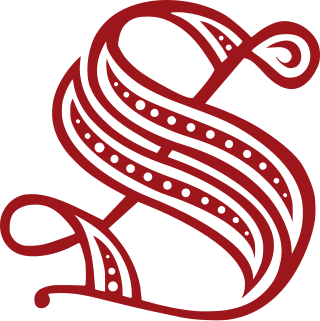
The politics of Belgium take place in the framework of a federal, representative democratic, constitutional monarchy. The King of the Belgians is the head of state, and the prime minister of Belgium is the head of government, in a multi-party system. Executive power is exercised by the government. Federal legislative power is vested in both the government and the two chambers of parliament, the Senate and the Chamber of Representatives. The federation is made up of (language-based) communities and (territorial) regions. Philippe is the seventh and current King of the Belgians, having ascended the throne on 21 July 2013.

A veto is a legal power to unilaterally stop an official action. In the most typical case, a president or monarch vetoes a bill to stop it from becoming law. In many countries, veto powers are established in the country's constitution. Veto powers are also found at other levels of government, such as in state, provincial or local government, and in international bodies.

A popular initiative is a form of direct democracy by which a petition meeting certain hurdles can force a legal procedure on a proposition.
A constitutional amendment is a modification of the constitution of a polity, organization or other type of entity. Amendments are often interwoven into the relevant sections of an existing constitution, directly altering the text. Conversely, they can be appended to the constitution as supplemental additions, thus changing the frame of government without altering the existing text of the document.

The Lok Sabha, also known as the House of the People, is the lower house of India's bicameral Parliament, with the upper house being the Rajya Sabha. Members of the Lok Sabha are elected by an adult universal suffrage and a first-past-the-post system to represent their respective constituencies, and they hold their seats for five years or until the body is dissolved by the president on the advice of the council of ministers. The house meets in the Lok Sabha Chambers of the Parliament House, New Delhi.
Special legislation is a legal term of art used in the United States to refer to legislation that targets an individual or a small, identifiable group for treatment that does not apply to all the members of a given class. A statute is often called special legislation when it targets a named person, but the term can also be applied to legislation that singles out an association or corporation. Although a prototypical special law applies only to a single particular person or entity, legislation is often considered special when it applies to a small group of people or other entities.

The Flemish Parliament constitutes the legislative power in Flanders for matters which fall within the competence of Flanders, both as a geographic region and as a cultural community of Belgium.
A supermajority is a requirement for a proposal to gain a specified level of support which is greater than the threshold of one-half used for a simple majority. Supermajority rules in a democracy can help to prevent a majority from eroding fundamental rights of a minority, but can also hamper efforts to respond to problems and encourage corrupt compromises at times when action is taken. Changes to constitutions, especially those with entrenched clauses, commonly require supermajority support in a legislature. Parliamentary procedure requires that any action of a deliberative assembly that may alter the rights of a minority have a supermajority requirement, such as a two-thirds vote. In consensus democracy the supermajority rule is applied in most cases.

The Federal Parliament is the bicameral parliament of Belgium. It consists of the Chamber of Representatives and the Senate. It sits in the Palace of the Nation in the centre of the nation's capital, Brussels.

The Senate is one of the two chambers of the bicameral Federal Parliament of Belgium, the other being the Chamber of Representatives. It is considered to be the "upper house" of the Federal Parliament. Created in 1831 as a chamber fully equal to the Chamber of Representatives, it has undergone several reforms in the past, most notably in 1993 and 2014. The 2014 elections were the first without a direct election of senators. Instead, the new Senate is composed of members of community and regional parliaments and co-opted members. It is a chamber of the communities and regions and serves as a platform for discussion and reflection about matters between these federated entities. The Senate today plays a minor role in the federal legislative process. However, the Senate, together with the Chamber, has full competence for the Constitution and legislation on the organization and functioning of the Federal State and the federated entities. Since the reform of 2014, it holds about ten plenary sessions a year.

The Italian Parliament is the national parliament of the Italian Republic. It is the representative body of Italian citizens and is the successor to the Parliament of the Kingdom of Sardinia (1848–1861), the Parliament of the Kingdom of Italy (1861–1943), the transitional National Council (1945–1946) and the Constituent Assembly (1946–1948). It is a bicameral legislature with 600 elected members and a small number of unelected members. The Italian Parliament is composed of the Chamber of Deputies, as well as the Senate of the Republic.

The Constitution of the Italian Republic was ratified on 22 December 1947 by the Constituent Assembly, with 453 votes in favour and 62 against, before coming into force on 1 January 1948, one century after the previous Constitution of the Kingdom of Italy had been enacted. The text, which has since been amended sixteen times, was promulgated in an extraordinary edition of Gazzetta Ufficiale on 27 December 1947.
A repeal is the removal or reversal of a law. There are two basic types of repeal; a repeal with a re-enactment is used to replace the law with an updated, amended, or otherwise related law, or a repeal without replacement so as to abolish its provisions altogether.
Before 1982, modifying the Constitution of Canada primarily meant amending the British North America Act, 1867. Unlike most other constitutions, however, the Act had no amending formula; instead, changes were enacted through Acts of the Parliament of the United Kingdom called the British North America Acts.

The Chamber of Representatives is one of the two chambers in the bicameral Federal Parliament of Belgium, the other being the Senate. It is considered to be the "lower house" of the Federal Parliament.

The Constitution of Belgium dates back to 1831. Since then Belgium has been a parliamentary monarchy that applies the principles of ministerial responsibility for the government policy and the Trias Politica.
In Belgium, a decree is a form of legislation passed by community or regional parliaments, except by the Brussels Parliament.

State reform, in the context of Belgium, is the ongoing process of seeking and finding constitutional and legal solutions to the problems and tensions in the different segments of the Belgian population, mostly between the Dutch-speakers of Flanders and the French-speakers of Wallonia. In general, Belgium has evolved from a unitary state to a federal state with communities, regions, and language areas.
Because the country contains two major language groups and numerous other linguistic minorities, in Canada official languages policy has always been an important and high-profile area of public policy.
Amending the Constitution of India is the process of making changes to the nation's fundamental law or supreme law. The procedure of amendment in the constitution is laid down in Part XX of the Constitution of India. This procedure ensures the sanctity of the Constitution of India and keeps a check on arbitrary power of the Parliament of India.









